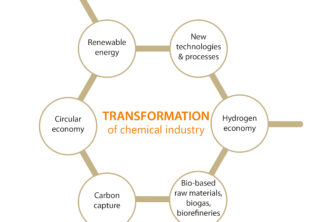Intel fulfilling Europe’s hunger for semiconductor chips

Semiconductor chip shortage has been a prominent issue disrupting the European supply chain. Through the Chips Act the European Union is looking for solutions to strengthen Europe’s technological leadership along with responsible sourcing. The efforts are being directed towards reducing the EU’s over-reliance on a single region for semiconductor chip supply.
On March 15, 2022, Intel announced investments up to € 80 billion to create a world-class semiconductor ecosystem in the European Union. The plan is to create an entire semiconductor value chain – from research and development (R&D) to manufacturing and to state-of-the art packaging technologies over the next decade. This initiative will enhance Europe’s R&D innovation as well as create leading-edge manufacturing for “Made in Europe” chips and is welcomed by several industry partners.
As a part of its initial investment, Intel announced an initial first phase € 17 billion investment into a project in the city of Magdeburg, Germany. The project aims at delivering semiconductor chips using Intel’s most advanced transistor technologies. Magdeburg will be the future site of 2 major semiconductor factories. Many cities across Europe were contesting for this investment, however, Magdeburg came on top due to its renowned research facilities, its existing industrial area with logistical advantages, and the availability of skilled professionals. This new “Silicon Junction” will create 7,000 construction jobs, and 3,000 permanent high-tech jobs at Intel. The pull effect for other tech-related investments will also play a significant role in the infrastructural development of Magdeburg.
This marks the largest single private investment in Europe which will also include back-end manufacturing facilities with an investment of up to € 4.5 billion in Italy, a European R&D hub in France, a lab expansion in Poland, as well as other investments in the Netherlands, Ireland, and Spain. The initiative will lay the groundwork for a networking semiconductor supply chain. Semiconductor supply chain resiliency will be the ultimate solution across industries which are currently hampered with inflation of raw material prices, and supply chain disruptions due to the pandemic as well as geo-political tensions.
Intel’s plans for investment will boost the European material and equipment supplier industry and generate a strong customer base across industries in Europe. In addition, the investment will attract a pool of qualified professionals which will drive leading edge chip design capabilities. This European semiconductor ecosystem will support the EU’s climate targets, and 2030 sustainability goals. The new factory will start its production from 2027 onwards and will help Europe to overcome the global chip shortage by decreasing the dependency on Asian producers.







